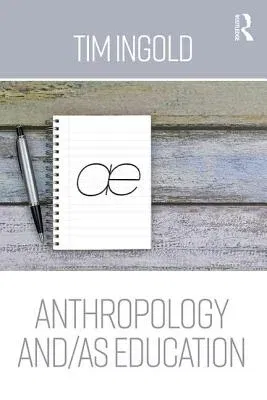There is more to education than teaching and learning, and more to
anthropology than making studies of other people's lives. Here Tim
Ingold argues that both anthropology and education are ways of studying,
and of leading life, with others. In this provocative book, he goes
beyond an exploration of the interface between the disciplines of
anthropology and education to claim their fundamental equivalence.
Taking inspiration from the writings of John Dewey, Ingold presents his
argument in four close-knit chapters. Education, he contends, is not the
transmission of authorised knowledge from one generation to the next but
a way of attending to things, opening up paths of growth and discovery.
What does this mean for the ways we think about study and the school,
teaching and learning, and the freedoms they exemplify? And how does it
bear on the practices of participation and observation, on ways of study
in the field and in the school, on art and science, research and
teaching, and the university?
Written in an engaging and accessible style, this book is intended as
much for educationalists as for anthropologists. It will appeal to all
who are seeking alternatives to mainstream agendas in social and
educational policy, including educators and students in philosophy, the
social sciences, educational psychology, environmentalism and arts
practice.

